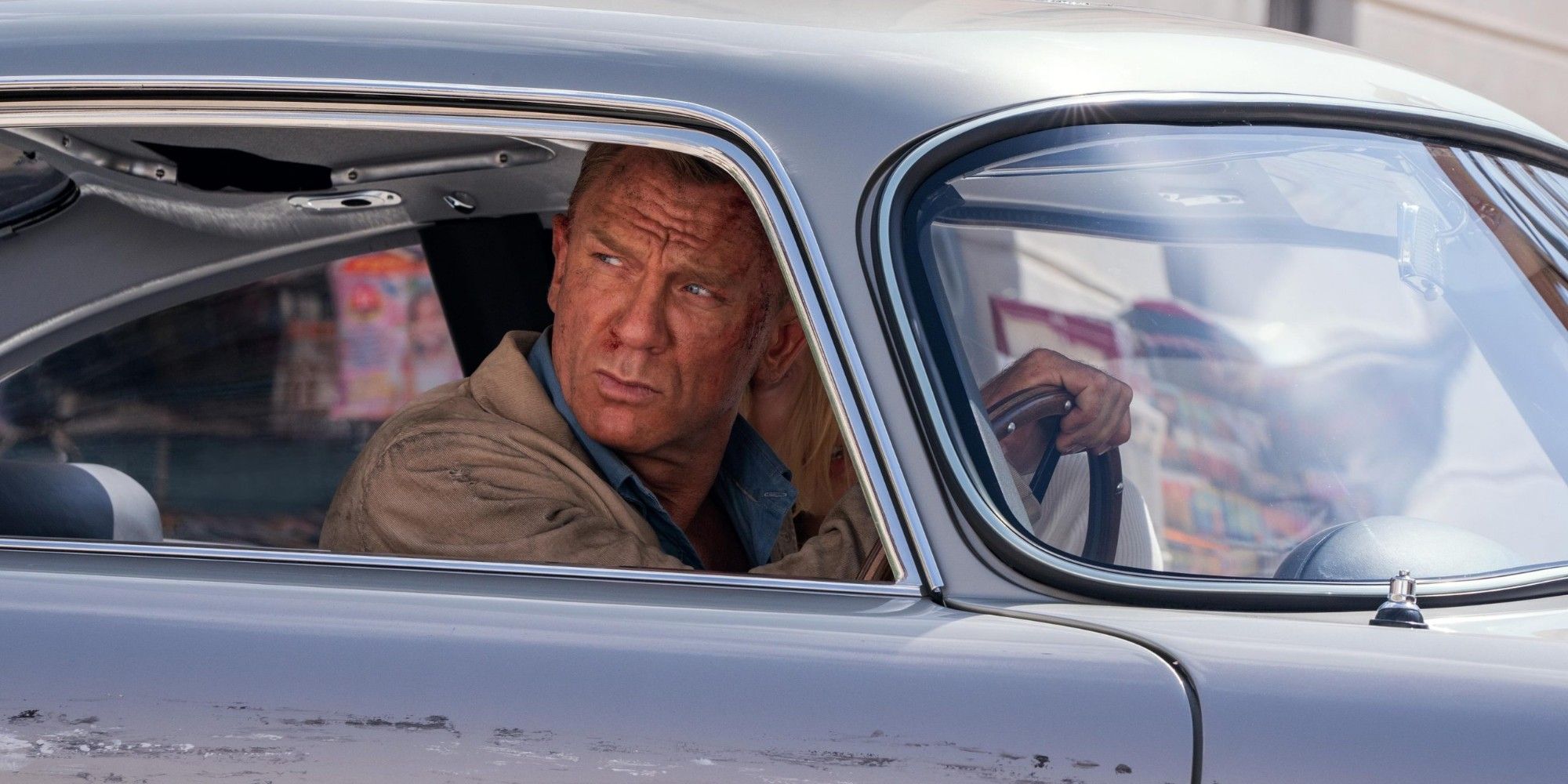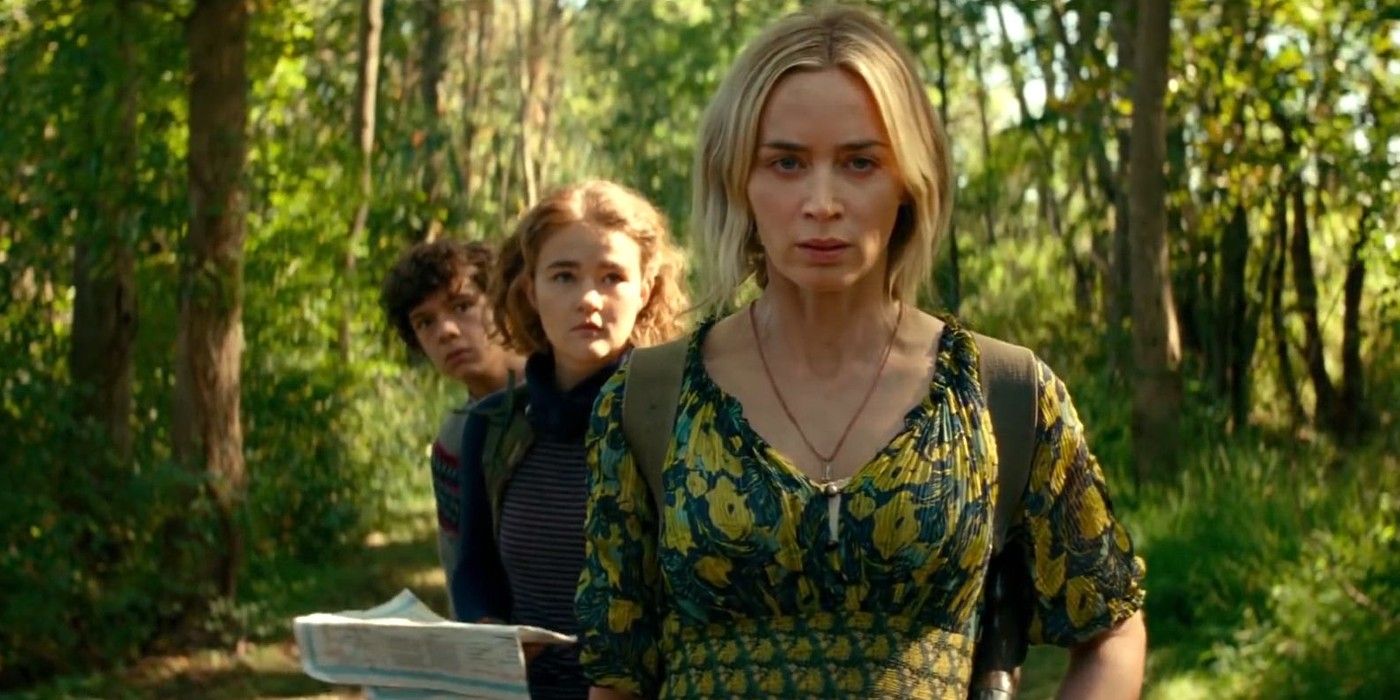The COVID-19, or coronavirus, pandemic has spurred major changes to Hollywood's business, including some costly delays and cancellations. The coronavirus pandemic has been going on for around three months now, leading to over 150,000 reported cases of infection in around 150 countries as of the writing of this piece, and a death toll of more than 5,600 people. As precautionary measures are being implemented worldwide, from quarantines to curfews to travel bans, one way to gauge how the coronavirus is affecting the world at large is through the changes happening in the world of film.
Over the course of the past two weeks, some massive changes have happened in Hollywood, from delayed productions to canceled shoots to postponed releases and much more. While there have been notable exceptions, such as Tom Hanks and Rita Wilson contracting the virus while working in Australia, most of these measures have been strictly precautionary steps taken for general health and safety reasons. Of course, it’s not all altruistic in the movie world. The coronavirus has presented some massive challenges to the major studios in terms of decreased grosses and loss of revenue. The economic effect of the pandemic is likely to spread far and wide across every aspect of life, from lost individual incomes to the hits that small and large businesses are expecting to weather. Many world governments are implementing financial contingency plans to prevent major fallout, although we have already seen the damage done to various economic markets.
The movieworld knew the problems were going to be major once theaters started closing in China and Europe. According to The Hollywood Reporter, around 70,000 cinemas in China have shuttered since the coronavirus outbreak struck. THR also predicts much greater costs:
"As it stands now, the global box office has already taken a coronavirus hit of at least $7 billion. If the remainder of March, April and May are included, lost revenue would climb another $10 billion, making a total loss of approximately $17 billion. And if the crisis continues beyond May, all bets are off."
That brutal hit to their finances has led some studios to delay their biggest releases, often by many months. While many smaller films have faced this fate, the biggest casualties are the spring and summer season blockbusters, most notably No Time to Die, Mulan, and F9. These delays are risky, but studios are willing to take those risks, seeing them as the lesser of two evils vs. staying with their release plans and potentially losing billions. Regardless, studios are still set to lose a solid chunk of change over these shutdowns and delays.
No Time To Die Could Lose $50 Million
When the 25th James Bond movie No Time To Die saw its release postponed by seven months mere weeks before it was set to premiere, it was the first real sign that the film industry was heading into some treacherous waters. While MGM had the benefit of being ahead of the curve in making this decision, thus allowing the studio to get a new slot on the release calendar with less fuss, it was still costly. The film was already in the late stages of its promotional campaign, from singer Billie Eilish extensively plugging her Bond theme to star Daniel Craig appearing as the guest host on Saturday Night Live.
The move gives No Time To Die some security, especially compared to its competition, but experts have still predicted a loss of $30 - 50 million thanks to the expense of the marketing, all of which will need to be repeated come November. The Hollywood Reporter also calculated that No Time To Die could see "a minimum of 30 percent shaved off the final box office tallies — a possible $300 million out of a likely $1 billion global haul."
A Quiet Place II’s Cancellation Could Cost $30 million
A Quiet Place proved to be a much-needed hit for the strife-ridden Paramount, bringing in over $340 million from a scant $17 -21 million budget. Hopes were high for A Quiet Place Part II, which had its premiere on March 8 in New York City. The global release was set for March 18, but A Quiet Place Part II has now been postponed. As Deadline noted, this was a real shock because Paramount had already reportedly spent around 60% of its budget for the film's marketing. The expense of the promotional campaign suggested that a major reschedule simply was not an option. The choice was made not just by the studio, but director John Krasinski and his production team as well. This abrupt cancellation, eight days before the film's release, could cost Paramount $30 million.
Mulan is Hit Hard by the China Lockdowns
With a reported budget of over $200 million, Disney's live-action remake of Mulan needed as wide a viewing audience as it could reach to be a financial success. The big-budget action epic was heavily tailored to the Chinese market with many major Chinese actors in the main roles and plot and stylistic changes made to reflect audience tastes over faithfully adhering to the original cartoon, like many other live-action remakes made by the company. Mulan didn't make its postponement announcement until Disney had already held the American and British premieres. The travel ban announced by President Donald Trump also made plans to promote the film in Asia impossible.
While there are no exact numbers on how Mulan's cancelation will financially hit Disney, we know that the costs will likely be high, perhaps some of the highest faced by any studio this season. Disney had already taken out Super Bowl ads, which cost millions of dollars. Advance ticket sales were also wiped out, with the massive advertising budget only adding to their woes. The Hollywood Reporter's predictions say that Mulan could lose even more than No Time To Die from its global tally given that the film was so heavily reliant on those big box office numbers from China.
Fast 9’s Losses Could Be Much Smaller Than Others
Universal postponed the release of the ninth Fast and Furious movie by nearly an entire year, shifting its new premiere to April 2021. Given the prominence the franchise has on the world market, especially in key international regions like China, postponing F9 made sense, and its new release date gives it some security, which other delayed major movies do not possess. The movie was two months away from its release, so the lion’s share of its promotional cycle had not yet taken place, which alleviates some of the financial burdens to the studio. Universal did, however, already drop a solid few million dollars on a Super Bowl ad.
How Much Will Shut Down Productions Cost Their Studios?
The costs of delaying and postponing releases are one thing, but the brunt of having to shut down entire productions for unknown periods of time is another major financial drain. Disney, for example, announced that it would "pause" a number of high-profile live-action productions, including the live-action remake of The Little Mermaid and the Marvel title Shang-Chi and the Legend of the Ten Rings. Once again, estimates provided by The Hollywood Reporter suggest that shutting down production on such titles could set Disney back around $300 - 350,000 per day per production. Warner Bros.' The Batman has also announced a production shutdown. The costs are high because they need to cover everything from lost pay of employees to equipment rental to location covers, and so on. Studios have insurance for such setbacks, but it's unknown how many of these plans will cover infectious diseases and pandemics like the coronavirus.






